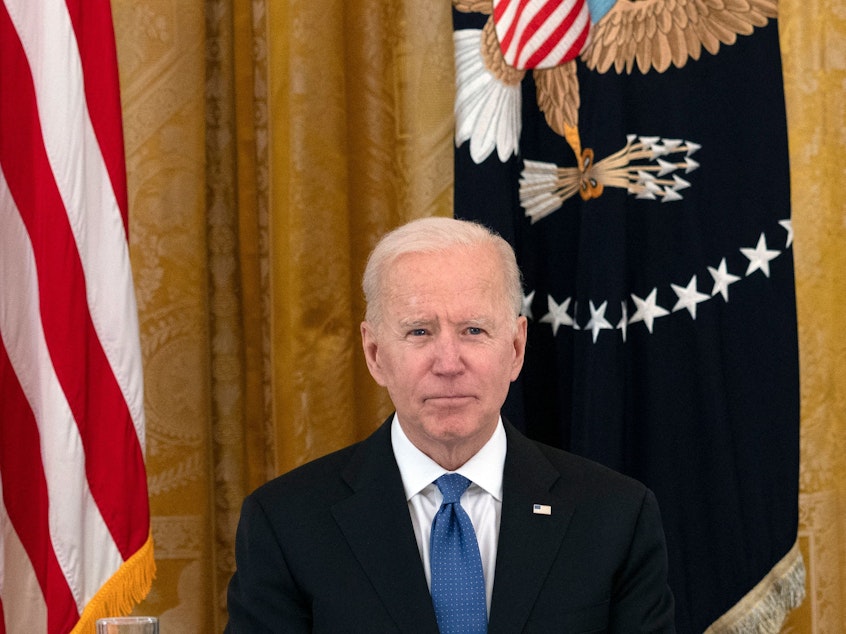Biden Allows Trump's Freeze On Skilled Worker And Other Visas To Expire

President Biden has allowed a ban on H1-B and other kinds of foreign work visas to expire, bringing to a close a dramatic clampdown on legal immigration put in place by the Trump administration last year as part of its response to the coronavirus pandemic.
The ban, imposed last June, was designed to prevent temporary workers from a range of industries from entering the country. At the time, President Trump said the freeze was needed to both protect public health and safeguard a job market that at the time was in freefall.
While groups that support less immigration cheered the move, it was widely opposed by business groups.
The original order centered on H1-B visas, which are aimed at certain kinds of skilled professionals, such as those working in the tech industry.
But it also hit a broader range of workers, including executives who work for large corporations in the U.S. through the L-1 visa program, seasonal workers in the hospitality industry, students on work-study programs and au pairs.
Sponsored
The end of the policy — announced on the State Department website — had been widely expected. On the campaign trail, then-candidate Biden called it "yet another attempt to distract from this Administration's failure to lead an effective response to COVID-19."
In February, Biden previewed the end of the policy with a proclamation condemning the immigration freeze, saying it was counterproductive to U.S. interests and hurt businesses and individuals alike.
"It harms the United States, including by preventing certain family members of United States citizens and lawful permanent residents from joining their families here," the proclamation said.
The Biden administration had already lifted a separate set of immigration restrictions put in place during the early months of the pandemic. In February, the White House also announced that it was revoking parts of a ban that blocked entry into the country for family members of U.S. citizens, winners of the diversity lottery program and some immigrants with employment-based green cards. [Copyright 2021 NPR]



